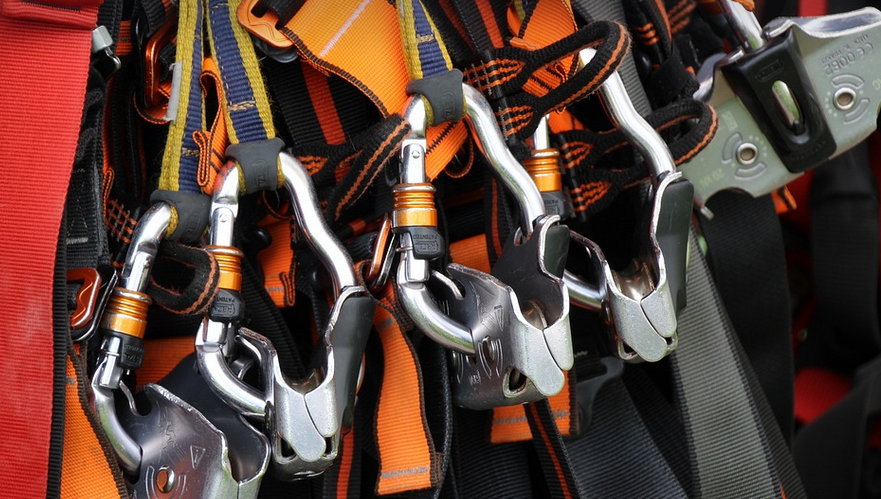
Understanding the Growing Need for Mental Health Support
In a world increasingly focused on well-being, mental health has taken center stage. We’re facing unprecedented challenges – societal pressures, economic instability, and a constant barrage of information can leave us feeling overwhelmed and disoriented. It’s no surprise that many people are struggling with their mental health.
This reality underscores the need for resources and support systems that go beyond traditional medical interventions. Enter Mental Health First Responder (MHFR) training. This emerging field is dedicated to equipping individuals with the tools to recognize, understand, and respond to mental health crises.
MHFRs are trained professionals who act as a lifeline for those experiencing mental health challenges. They bridge the gap between everyday encounters and professional help, providing support that can be crucial in times of crisis. Imagine being able to connect with someone facing struggles like anxiety or depression – or witnessing a loved one dealing with a panic attack – and knowing you have the knowledge and skills to offer immediate assistance.
MHFR training goes beyond just identifying signs of distress. It delves into empathy, active listening, de-escalation techniques, and crisis intervention strategies. It equips individuals with the ability to provide support, build community, and connect people with resources they may need.
The impact of such training extends far beyond the individual level. Think of a workplace where employees feel empowered to recognize symptoms of burnout or stress in their colleagues, leading to quicker intervention and improved well-being within the organization. Imagine communities where MHFRs can provide support during crisis situations like natural disasters or major life events. The ripple effect becomes evident.
Training for Mental Health First Responders: A Comprehensive Approach
The journey towards becoming an MHFR starts with self-reflection and a deep dive into the world of mental health. It involves understanding the diverse spectrum of mental health challenges, their causes, and potential triggers. This foundation is built upon comprehensive modules:
* **Mental Health Awareness:** This module serves as a cornerstone, exploring various mental health conditions, including anxiety, depression, bipolar disorder, and substance abuse. Participants gain insight into common symptoms, warning signs, and the impact of these illnesses on individuals.
* **Building Empathy and Skills:** This module focuses on developing crucial skills like active listening, non-verbal communication, and emotional intelligence. It equips participants to handle difficult conversations with sensitivity and build a foundation for trust and rapport.
* **Crisis Intervention Techniques:** This module is where the real action begins. It introduces strategies for de-escalation, crisis intervention, and conflict resolution techniques, equipping participants to handle difficult situations calmly and effectively.
* **Resource Navigation:** Understanding that MHFRs are not therapists but rather support individuals in connecting with the appropriate professional help is crucial. This module covers resources – community mental health centers, hotlines, therapists, peer support groups – enabling participants to guide those they help toward a path towards recovery.
* **Legal and Ethical Considerations:** A comprehensive understanding of the legal and ethical boundaries within which MHFRs operate is vital. These considerations ensure safe practices, responsible actions, and protect individuals from exploitation or undue influence.
The training can take various forms:
* **Online Modules:** Interactive online modules offer flexibility, self-paced learning, and instant feedback opportunities for those who prefer a digital approach.
* **In-Person Workshops:** Hands-on workshops allow participants to engage in collaborative learning, role-playing exercises, case studies, and discussions with experts.
* **Community-Based Training:** This option focuses on local needs, tailoring training to specific communities, organizations, or populations.
The Future of Mental Health Support
The future is bright for mental health support, thanks to the rise of MHFRs. These trained individuals are crucial in providing immediate help and connecting individuals with the resources they need. Imagine a world where everyone feels empowered to recognize signs of distress, offer support, and build communities that promote mental well-being. This vision takes shape through:
* **Increased Awareness:** MHFR training initiatives will continue to grow in popularity, leading to heightened awareness about mental health challenges.
* **Community Integration:** MHFRs will be increasingly integrated into workplaces, schools, community centers, and first responder organizations. This widespread integration opens up doors for support during critical moments.
* **Technological Advancements:** Artificial intelligence (AI) could play a crucial role in identifying mental health crises early and connecting individuals with appropriate support systems. Imagine AI-powered chatbots offering initial guidance for those seeking help, or virtual reality simulations training MHFRs to respond effectively to real-life situations.
* **Policy Changes:** As we delve deeper into the importance of mental health, policy changes will emerge, leading to greater investment in this field and creating pathways for more individuals to access support.
The road ahead is paved with possibilities as the world witnesses a shift towards understanding, supporting, and fostering mental well-being. The role of MHFRs will continue to evolve as we navigate these uncharted waters.


